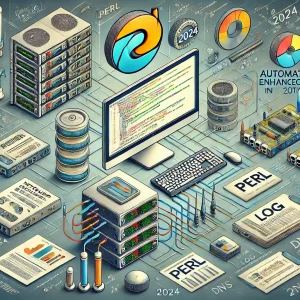C++ programming for game development and high-performance applications 2024 continues to be the top choice for developers. It offers robust features, fine control over hardware, and efficient memory management. These attributes make it ideal for optimized performance. In 2024, the relevance of C++ is still growing. Advancements in game engines and application demands further cement its place in the programming world. This blog explores why C++ remains critical for game development and high-performance applications. We will delve into its features, industry trends, and practical applications.
The Power of C++ Programming for Game Development and High-Performance Applications 2024
- Performance and Efficiency
- Low-Level Memory Management: C++ programming for game development and high-performance applications 2024 offers unmatched control over memory management. Developers can optimize the performance of their games effectively. This low-level control is crucial for handling large assets and complex operations.
- Object-Oriented Programming (OOP): The OOP paradigm in C++ enables developers to create reusable and modular code. This approach is essential for large-scale game development projects.
- Speed: C++ is renowned for its execution speed, which is vital for real-time game rendering and physics calculations.
- Widely Supported Game Engines
- Unreal Engine: One of the most popular game engines, Unreal Engine, is built using C++. It leverages the language’s capabilities to deliver stunning graphics and smooth gameplay experiences.
- Unity: While primarily using C#, Unity supports C++ programming for game development and high-performance applications 2024 for performance-critical sections. This highlights the language’s role in enhancing game performance.
- CryEngine: Known for its high-fidelity graphics, CryEngine utilizes C++ to manage its complex rendering and physics systems.
- Cross-Platform Development
- Portability: C++ programming for game development and high-performance applications 2024 can be compiled on various platforms, including Windows, macOS, Linux, and consoles. This makes it easier for developers to port their games across different systems.
- Standard Libraries: The extensive standard libraries in C++ provide tools for networking, file handling, and other essential functionalities. These streamline cross-platform development.
C++ Programming for Game Development and High-Performance Applications 2024 in High-Performance Applications
- System Programming
- Operating Systems: Developers use C++ to develop operating systems like Windows, where performance and resource management are critical.
- Embedded Systems: C++ is preferred for embedded systems programming due to its ability to run close to the hardware. This provides the necessary performance for real-time operations.
- Financial Systems
- High-Frequency Trading (HFT): In the financial sector, C++ programming for game development and high-performance applications 2024 is used for developing HFT systems. Here, milliseconds can mean the difference between profit and loss. The language’s speed and efficiency are crucial for processing large volumes of transactions in real-time.
- Risk Management: Financial applications that require complex calculations and simulations, such as risk management systems, benefit from C++’s performance and precision.
- Scientific Computing
- Simulations: C++ programming for game development and high-performance applications 2024 is widely used in scientific computing for simulations. These require intensive computations, such as climate modeling and molecular dynamics.
- Data Analysis: The language’s ability to handle large datasets efficiently makes it suitable for data analysis applications in fields like genomics and astronomy.
Trends in 2024: C++ Programming for Game Development and High-Performance Applications 2024
- Advancements in Game Engines
- Ray Tracing: Modern game engines are incorporating real-time ray tracing. This technique provides more realistic lighting and shadows. C++ programming for game development and high-performance applications 2024 plays a crucial role in optimizing these demanding calculations.
- AI Integration: The integration of artificial intelligence in games for smarter NPC behavior and procedural content generation is on the rise.
- Improved Toolchains and Libraries
- C++20 and Beyond: The latest standards, including C++20, bring new features like concepts, ranges, and coroutines. These make the language more powerful and easier to use for developers.
- Enhanced Libraries: Libraries like Boost and Qt are continuously evolving. They provide developers with more tools to streamline development processes and improve performance.
- Increased Adoption in Emerging Technologies
- Virtual and Augmented Reality (VR/AR): C++ programming for game development and high-performance applications 2024 is being used to develop VR and AR applications. Its performance capabilities ensure smooth and immersive user experiences.
- Autonomous Vehicles: The development of software for autonomous vehicles relies heavily on C++ for processing sensor data and making real-time decisions.
Practical Applications: Case Studies and Examples
- Epic Games and Unreal Engine
- Fortnite: The massively popular game Fortnite, developed by Epic Games, utilizes Unreal Engine and C++ programming for game development and high-performance applications 2024. It handles its extensive player base and complex gameplay mechanics efficiently.
- Real-Time Rendering: Unreal Engine’s real-time rendering capabilities are powered by C++. This provides developers with the tools to create visually stunning games.
- Crytek and CryEngine
- Visual Fidelity: CryEngine is known for its high visual fidelity, achieved through C++ optimizations. These handle advanced graphics and physics calculations.
- Scalability: Games like Crysis showcase CryEngine’s ability to scale across different hardware configurations, from consoles to high-end PCs. This is thanks to its C++ foundation.
- High-Frequency Trading Platforms
- Market Access: Companies like Citadel Securities use C++ programming for game development and high-performance applications 2024 to build their trading platforms. This ensures they can process and react to market changes in microseconds.
Best Practices for C++ Programming for Game Development and High-Performance Applications 2024
- Code Optimization
- Profiling Tools: Use profiling tools like Valgrind and Intel VTune to identify and optimize performance bottlenecks in your C++ code.
- Memory Management: Implement efficient memory management practices. Use smart pointers and minimize memory leaks to ensure your applications run smoothly.
- Concurrency and Parallelism
- Multithreading: Leverage C++’s support for multithreading to improve the performance of your applications. This is especially useful in game development where multiple tasks need to run concurrently.
- Asynchronous Programming: Utilize asynchronous programming techniques, such as futures and promises, to handle I/O operations without blocking the main thread.
- Modern C++ Practices
- Use of Modern Standards: Adopt the latest C++ standards, such as C++20. This allows you to take advantage of new language features and improvements.
- Code Readability: Maintain code readability and maintainability by following best practices. Adhere to coding standards and use meaningful variable names.
Conclusion
C++ programming for game development and high-performance applications 2024 remains as relevant and powerful as ever. With its unmatched performance, extensive support in game engines, and applicability in various high-performance domains, C++ continues to be a critical tool for developers. As the industry evolves, embracing modern C++ standards and practices will ensure that developers can harness the full potential of this versatile language. Whether you’re building the next blockbuster game or developing a high-frequency trading platform, C++ provides the capabilities you need to succeed.
By understanding the strengths and trends of C++ programming for game development and high-performance applications 2024, developers can make informed decisions. They can leverage this powerful language to create cutting-edge applications and games. The future of C++ in game development and high-performance applications looks bright. It promises continued innovation and excellence.





